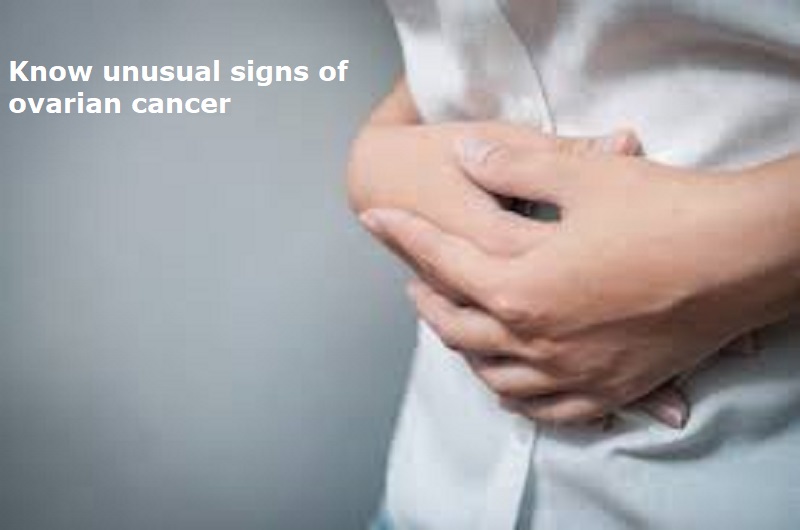
Ovarian cancer is a growth of cells that form in the ovaries. The cells can multiply rapidly and attack and destroy healthy body tissue. Ovarian cancer often goes undetected in its early stages. It can affect women of any age but is most commonly diagnosed in women over 50.
Age, family history of cancer, weight and lifestyle all increase the risk of ovarian cancer. Treatment is chemotherapy and surgery. Ovarian cancer is the fifth most common cause of cancer-related death in US women.
Ovarian cancer is often called the ‘silent killer’ because it can be difficult to detect in its early stages. However, there are some signs and symptoms that may indicate the presence of ovarian cancer.
Here are 10 unusual signs of ovarian cancer:
1. Bloating
Persistent bloating that doesn’t go away with usual remedies may indicate ovarian cancer. Avoid foods that can cause gas and bloating, such as beans, carbonated drinks, and fried foods. Include more fibre into your diet and staying hydrated.
2. Abdominal or pelvic pain
Constant or frequent pain in the abdomen or pelvis may be a sign of ovarian cancer
3. Difficulty eating or feeling full quickly
If you experience a loss of appetite or feel full quickly, even after eating small meals, it could be a sign of ovarian cancer.
4. Urinary symptoms
Symptoms such as frequent urination or urgency may occur with ovarian cancer. To manage these symptoms, try to limit your intake of caffeine and alcohol.
Also Read: Eating these foods will improve your mood
5. Fatigue
Persistent fatigue or feeling unusually tired may be a sign of ovarian cancer.
6. Indigestion or heartburn
Chronic indigestion or heartburn that doesn’t improve with lifestyle changes may indicate ovarian cancer.
7. Back pain
Persistent back pain, especially in the lower back, may be a sign of ovarian cancer.
8. Changes in bowel habits
Changes in bowel habits, such as diarrhoea or constipation, may occur with ovarian cancer.
9. Unexplained weight loss or gain
Significant and unexplained weight loss or gain should be evaluated by a doctor, as it can be a sign of various health issues, including ovarian cancer.
10. Changes in menstrual cycle
Any changes in menstrual patterns, such as heavier or irregular periods, should be discussed with a doctor, especially if they are accompanied by other symptoms mentioned above.

Post Your Comments